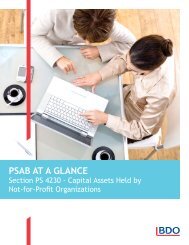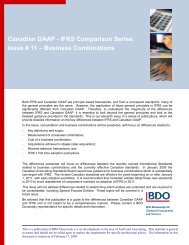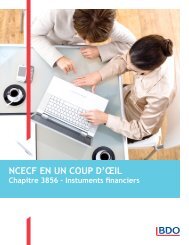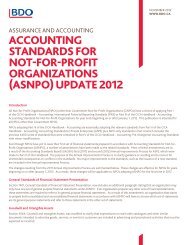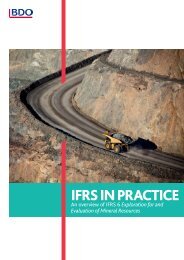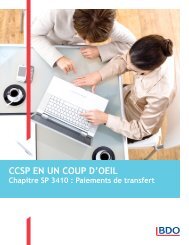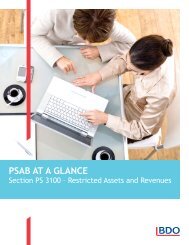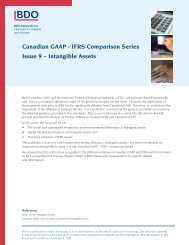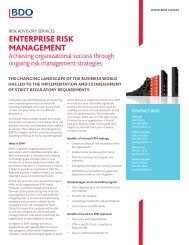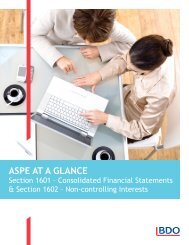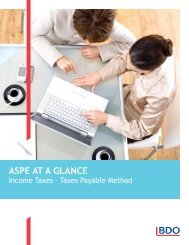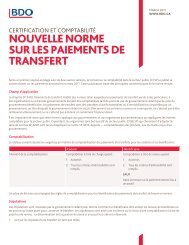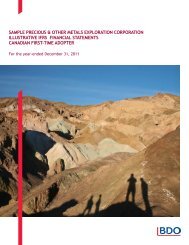Need to Know: IFRS 10 - Consolidated Financial ... - BDO Canada
Need to Know: IFRS 10 - Consolidated Financial ... - BDO Canada
Need to Know: IFRS 10 - Consolidated Financial ... - BDO Canada
- No tags were found...
You also want an ePaper? Increase the reach of your titles
YUMPU automatically turns print PDFs into web optimized ePapers that Google loves.
40 <strong>IFRS</strong> <strong>10</strong> <strong>Consolidated</strong> <strong>Financial</strong> Statements7.6.3. FranchisesIAS 27(2008) did not provide guidance on the accounting for franchise arrangements. In contrast, <strong>IFRS</strong> <strong>10</strong> specificallyaddresses franchises in paragraphs B29 <strong>to</strong> B33. <strong>IFRS</strong> <strong>10</strong>.B29 describes a franchise agreement as being an arrangementthat often gives the franchisor:––Rights that are designed <strong>to</strong> protect the franchise brand––Certain decision-making rights with respect <strong>to</strong> the operations of the franchisee.<strong>IFRS</strong> <strong>10</strong>.B30 notes that the franchisor’s rights do not necessarily result in a current ability <strong>to</strong> direct the relevantactives. This means that the franchisor will usually not control a franchisee simply because there is a franchisearrangement in place; other fac<strong>to</strong>rs are required. It is also noted that a franchise arrangement in general does notrestrict other parties’ (e.g. the franchisee’s) ability <strong>to</strong> make decisions about relevant activities. The lower the level offinancial support provided by the franchisor and the lower the franchisor’s exposure <strong>to</strong> variability of returns from thefranchisee the more likely it is that the franchisor has only protective rights (<strong>IFRS</strong> <strong>10</strong>.B33).It is necessary <strong>to</strong> distinguish between the current ability <strong>to</strong> make decisions that significantly affect the franchisee’sreturns (which the franchisor usually does not have) and the ability <strong>to</strong> make decisions that protect the franchisebrand (which the franchisor usually has). A franchisor does not have power over the franchisee if other parties haveexisting rights that give them the current ability <strong>to</strong> direct the relevant activities of the franchisee (<strong>IFRS</strong> <strong>10</strong>.B31).This is because the franchisee has made a unilateral decision when they entered in<strong>to</strong> the franchise agreement <strong>to</strong>operate its business in accordance with the terms of the franchise agreement, but for its own account (<strong>IFRS</strong> <strong>10</strong>.32).



